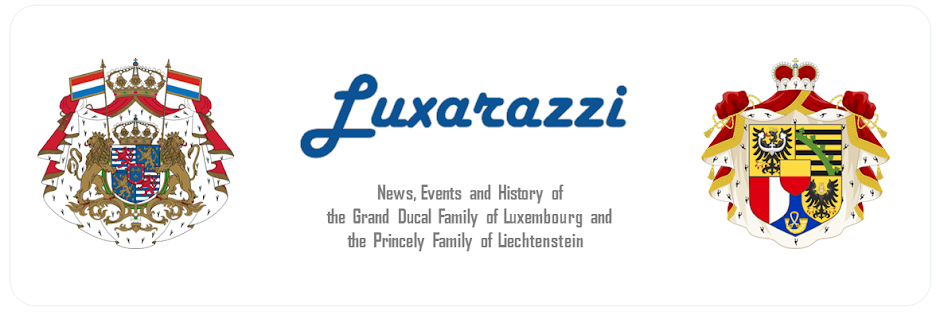These days the world is commemorating the beginning of the First World War which also had profound impact on Luxembourg though the country technically remained neutral. In 1919,
the world came very close to losing its last grand duchy. The Luxembourg
monarchy was undergoing a crisis brought about by the enormous impact of World
War I, the blurred lines between the powers of a monarch and the functions of
politics, the abolishment of several other European monarchies during that
time, and the interest in new socioeconomic theories (such as socialism and
communism) in Europe was forcing the citizens of Luxembourg to question whether
or not a new system of governance was needed. The matter was decided
through a referendum held in fall of 1919, in which the fate of the Luxembourg
monarchy was decided.
 |
| The Grand Ducal Family in 1918 |
By early March, there were indications that the citizens of
Luxembourg were leaning toward a union with Belgium as the Grand Duchy was most
familiar with a monarchy. If Luxembourg
were to become a republic, critics argued, the French would likely absorb the
territory and impose heavy taxes upon its people. Land-locked Luxembourg also preferred to use
the port of Antwerp for shipping, making partnership with Belgium logical. A shortage of labor in France could mean increased
job opportunities for Luxembourg citizens, but the cost of living within France
was more expensive than in Belgium.
The plebiscite was held on September 28, 1919. The citizens
had the choice of keeping Charlotte as Grand Duchess, selecting another ruler
from the Nassau dynasty, choosing a member of a different
European royal family (which would have basically meant that King Albert I of the Belgians would have also become Grand Duke of Luxembourg), or transforming Luxembourg into a republic. Voters were also asked to chose between allying
economically with France or Belgium (but not being annexed by either). The election marked the first time in which all
citizens over the age of 21 - men and women - were eligible to vote.
By the end of the first day of ballot counting, it was
clear that the people of Luxembourg wished to keep Charlotte as its monarch. In
the end, voters elected to keep their ruling Grand Duchess, with 77.8% voting
in favor of keeping the monarchy intact.
In a distant second, slightly less than 20% of voters wished to abolish
the monarchy in favor of the creation of a republic. In their first turnout as voters, it
was later reported that the percentage of female voters was higher than that of male
voters.
 |
| Grand Duchess Charlotte in 1919 |
Results also indicated that an economic partnership with
France was preferred over Belgium, an outcome that had been expected. Over 73% of voters chose the French alliance
over the Belgian. The outcome of the
election prompted Belgium to accuse the French of interference, however, the French declined any economic association with Luxembourg and so, two
years later, Luxembourg and Belgium formed an economic union (the Union économique
belgo-luxembourgeoise or UEBL) that has flourished ever since.
In
the following years, Charlotte worked tirelessly to gain the trust and admiration
of her people. Charlotte’s descendants have continued by her example in symbolizing and serving their country. Luxembourg's independence and unique status as the world's only Grand Duchy was maintained all thanks to the support of the citizen of Luxembourg and that historic
vote back in 1919.

Kko
ReplyDelete